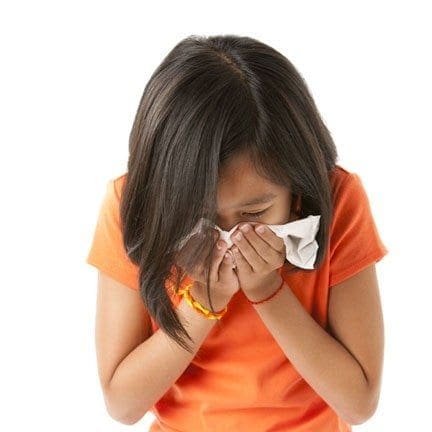The start of a new school year exposes children to many things — new friends, teachers, and lots of germs. According to the National Institutes of Health, families with school-age children have a higher rate of illness than other families and the number of illnesses per child can be as high as 12 a year.
The most common illnesses that plague schools are strep throat, colds, influenza and chicken pox. Head lice are also a familiar problem (especially among elementary school children), and school nurses rarely have a year without seeing cases of pink eye and Fifth Disease. Since it’s virtually impossible to escape germs in school, the key is to learn how to be proactive in preventing these illnesses.
Staying healthy is not hard. Follow these simple tips for a healthy school year.
Use Good Hand washing techniques
Frequent hand-washing is one of the simplest — and most effective — ways to stay healthy in school. Remind your child to wash his or her hands before eating and after using the toilet, blowing his or her nose, or playing outside. Suggest soaping up for as long as it takes to sing the “Happy Birthday” song twice.
Use hand sanitizer. Give your child alcohol-based hand sanitizer to keep in his or her desk. Remind your child to use the sanitizer before eating snacks or lunch and after using a shared computer mouse, pencil sharpener, water fountain or other community objects. If appropriate you might also give your child disinfecting wipes for general use.
Cover mouth and nose when coughing or sneezing. Give your child a package of tissues to keep in his or her desk. Encourage your child to cough or sneeze into a tissue — then put the tissue in the trash, and wash his or her hands or use hand sanitizer. If it isn’t possible to reach a tissue in time, remind your child to cough or sneeze into the crook of his or her elbow.
Keep hands away from your eyes and out of the mouth. Remind your child that hands are often covered in germs.
Don’t share water bottles, food or other personal items. Offer your child this simple rule — if you put the item in your mouth, keep it to yourself.
Of course, it’s also important for your child to eat a healthy diet and get plenty of sleep. To prevent spreading illness at home, use the same tips for the entire family.
Originally appeared in our “Ask the Nurse” Column brought to you by PSA Healthcare [2]
DISCLAIMER: The contents of the Ask the Nurse column (“Column”) such as text, medical information, graphics, images and any and all other material contained in the column (“Content”) are for informational purposes only. The Content is not intended to be a substitute for professional medical advice, diagnosis, or treatment. Always seek the advice of your (or your child’s) physician or other qualified health provider with any questions you may have regarding a medical condition. NEVER DISREGARD PROFESSIONAL MEDICAL ADVICE OR DELAY IN SEEKING CARE BECAUSE OF SOMETHING YOU (OR YOUR CHILD) HAVE READ IN ANY MEDICAL LITERATURE!
SUBSCRIBE!
Sign up NOW to receive our “31 Back-to-School Tips for a Successful School Year” delivered right to your inbox.
Helpful Articles
- Puberty and Hygiene: How to Support Our Children [4]
- Staying Calm While in the Chaos of the Storm [5]
- 6 Ways Help Special Needs Families During The Pandemic [6]
- New Insights learned from being in lockdown [7]
- You Don’t Need to Leave Your House to Have an Adventure [8]
- Coronavi…yesss!? Do You Find You’re Saying “Yes” More Often? [9]
- Their Tears and Fears. Masks and More: How to Really Help Your Child Thrive in the New Normal [10]
- How to Protect Your Mental Health During Coronavirus [11]
- Staying at Home Tech Tips to Help Throughout Your Day [12]
- Practical Tools for Learning Anywhere [13]
- Oxygen: Caring for Ourselves to Care for Our Children [14]
- How to Make Halloween Fun During Covid-19 [15]
- How to Plan a Safe and Fun Summer With COVID-19 Guidelines [16]
- Got Pumpkin Plates? How to Teach Social Distancing Using Pumpkin Plates [17]
- Teach Your Kids to Social Distance With the Help of a Lobster [18]


